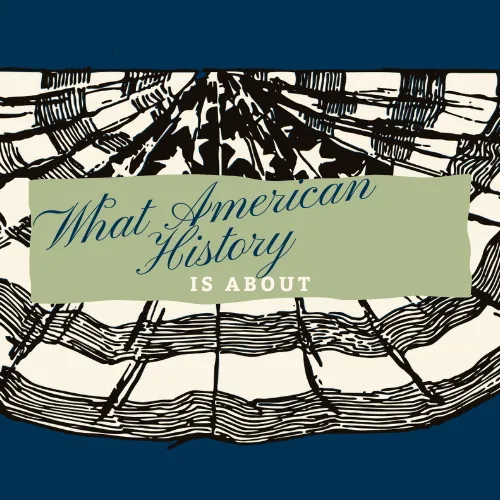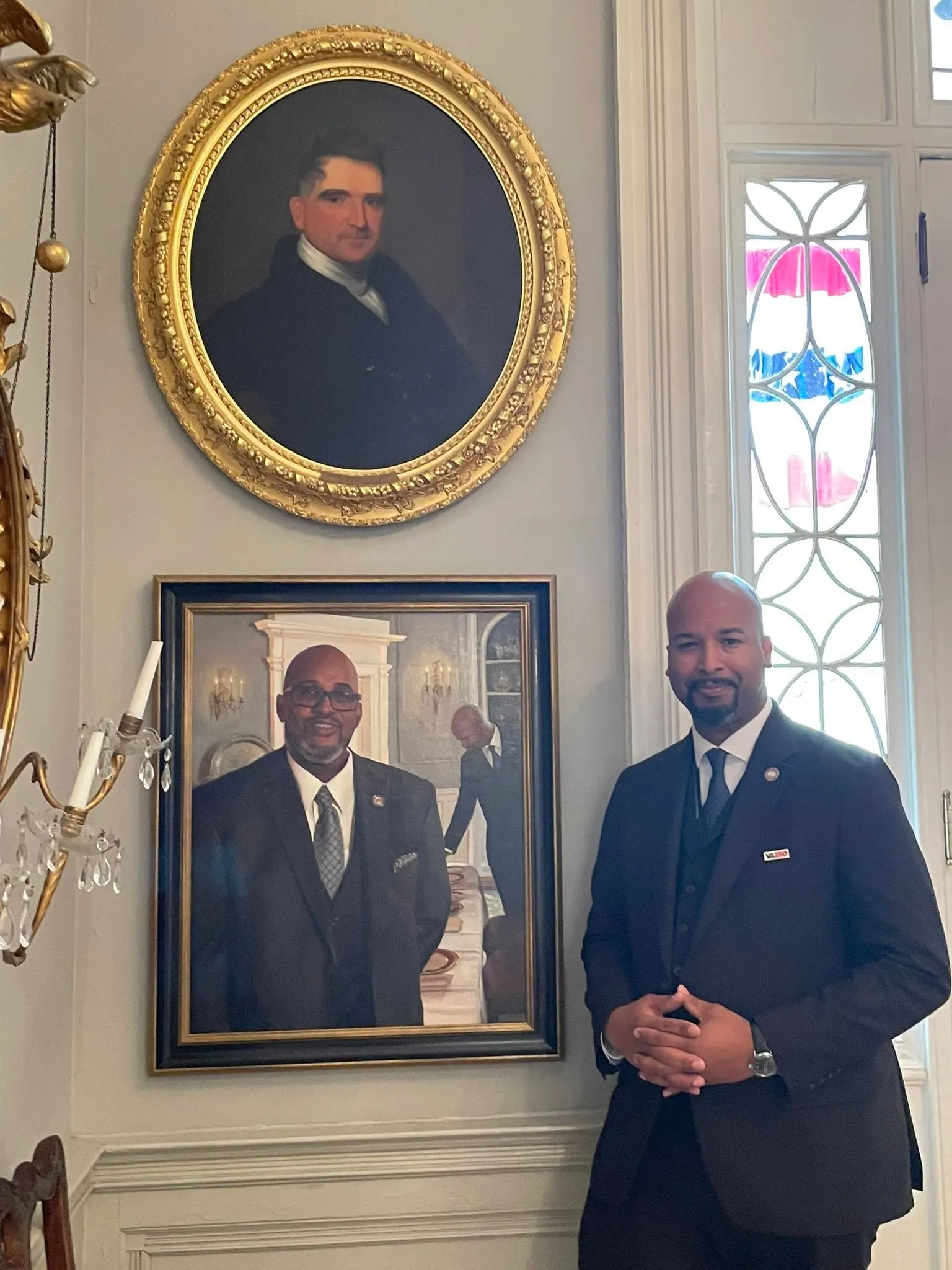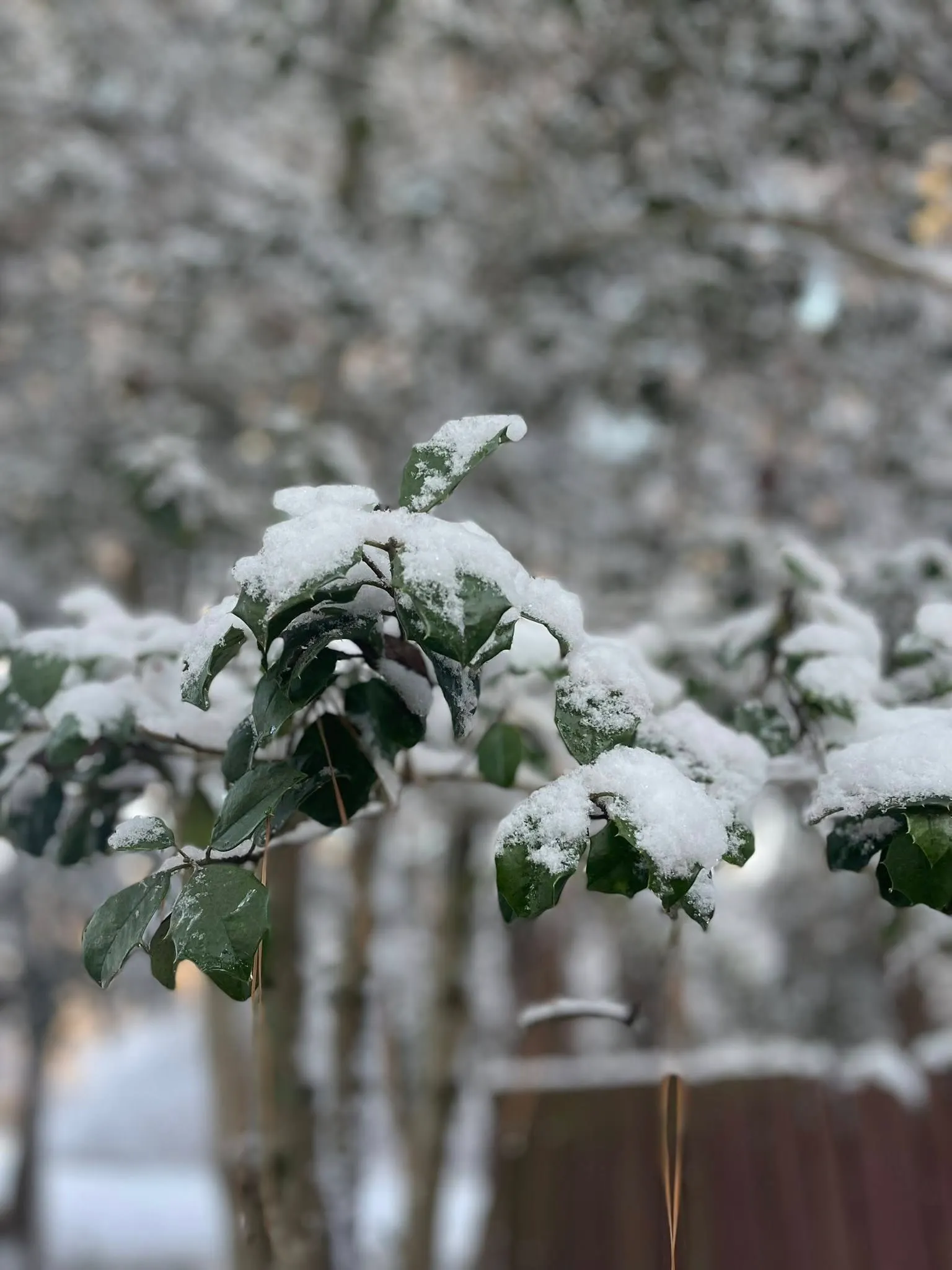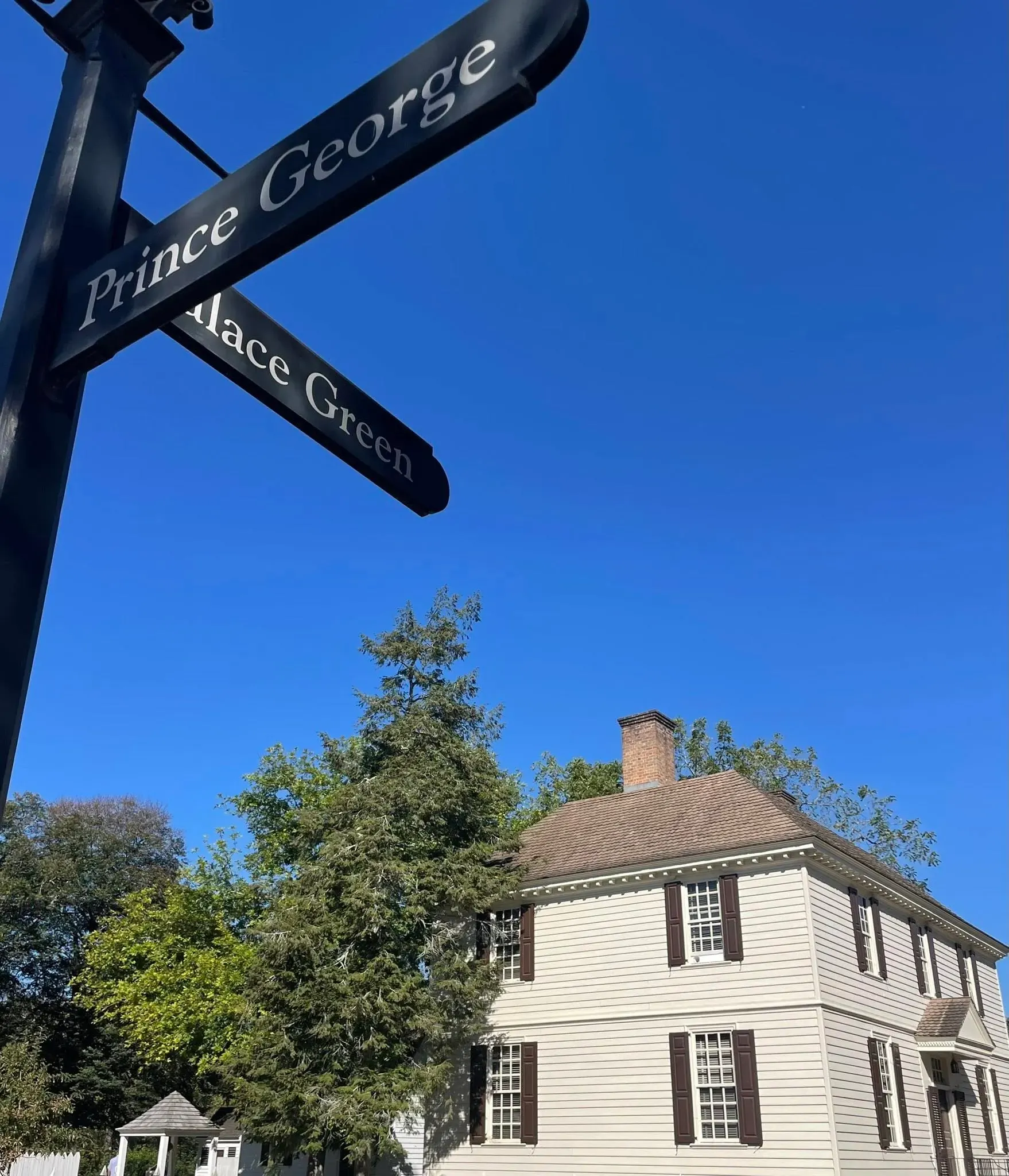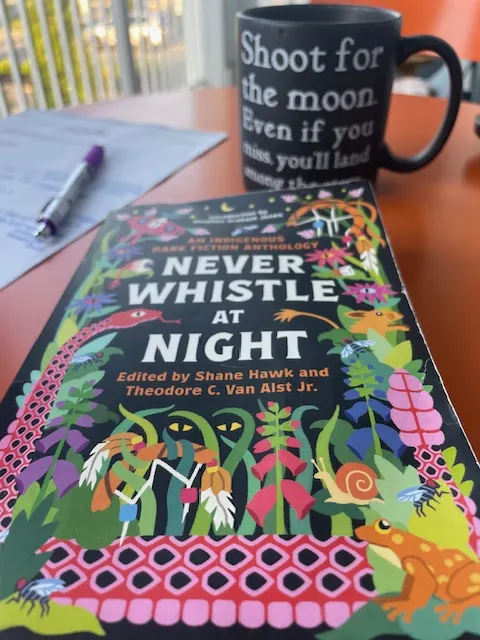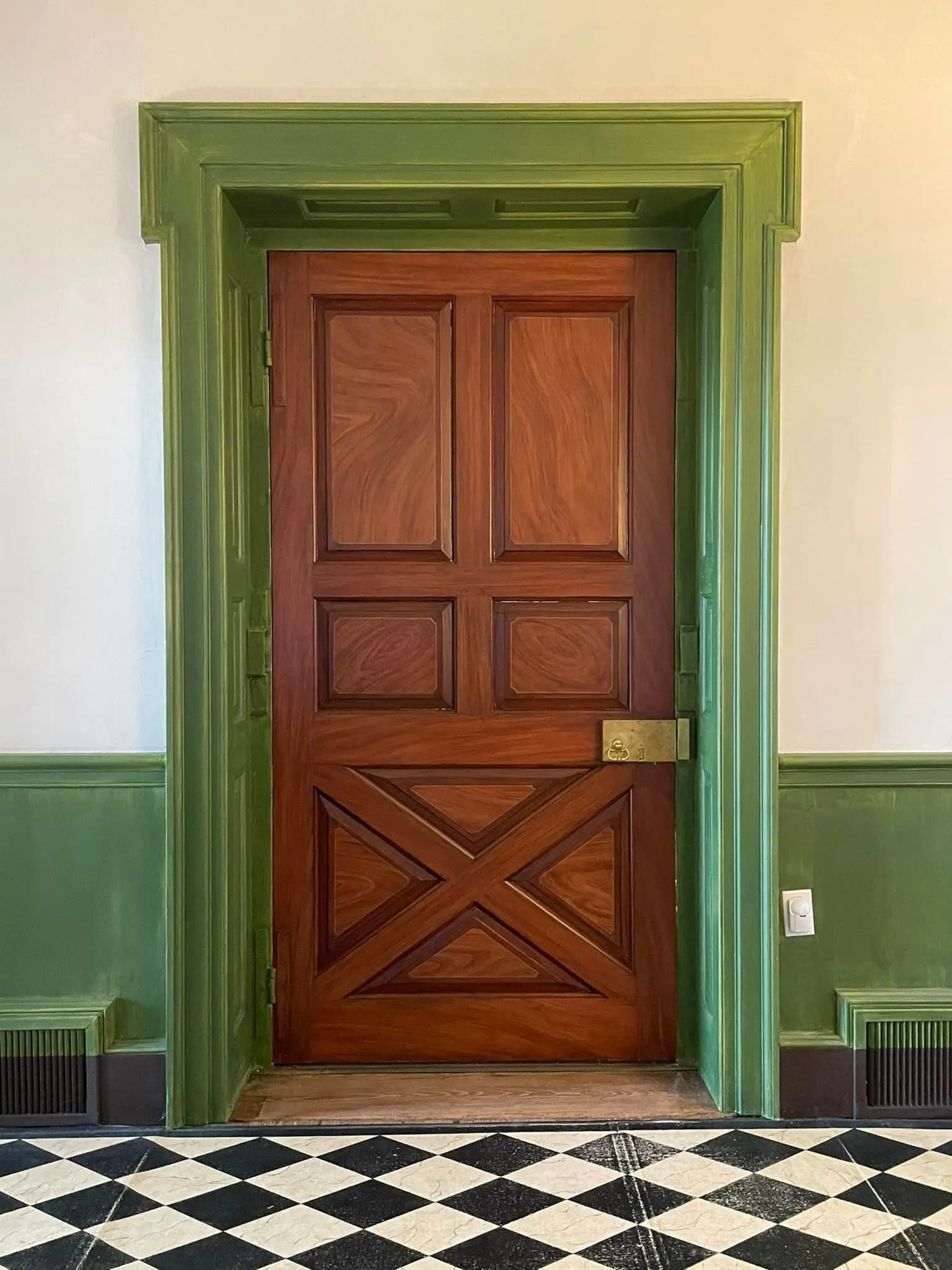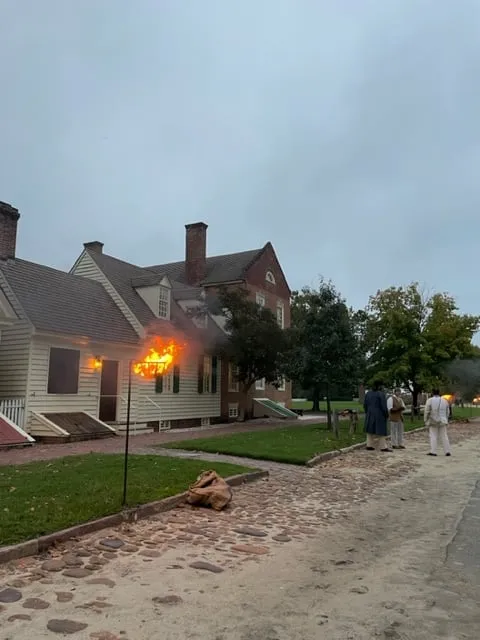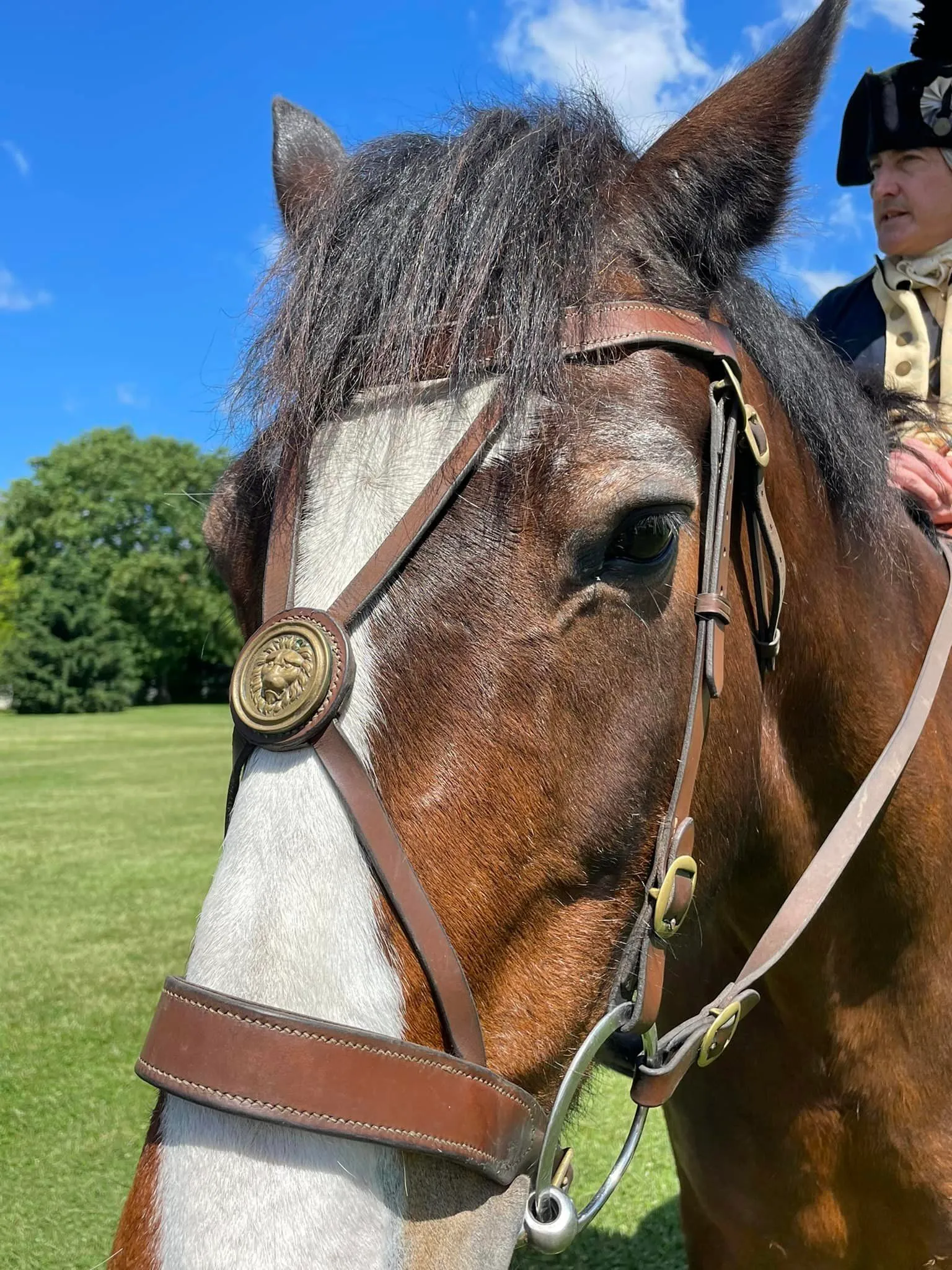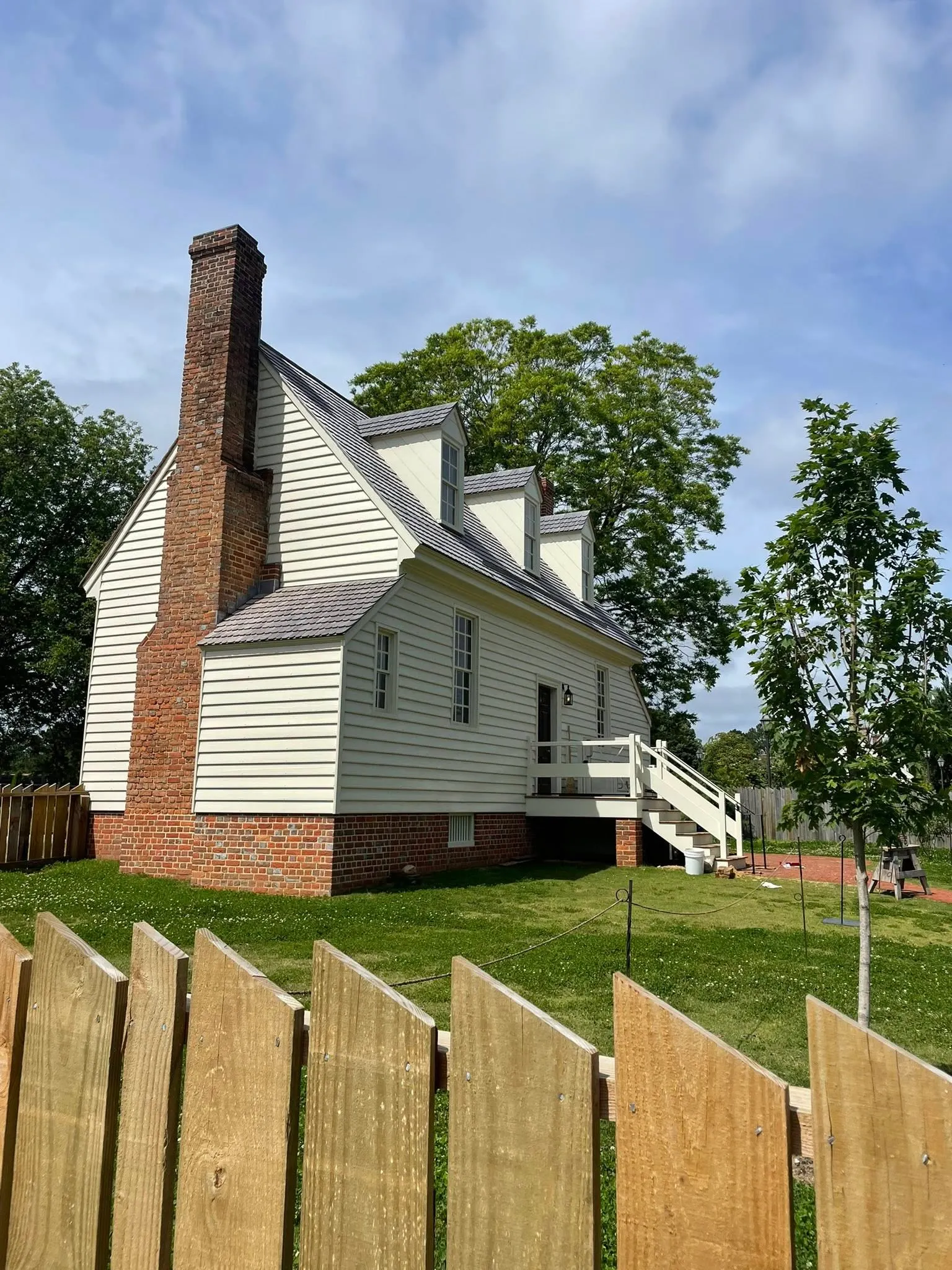The Jefferson Triumvirate of Williamsburg: A Concise Historical Summary
Why the Jefferson triumvirate of Williamsburg caught my attention.
Colonial Williamsburg (CW) is focused on sharing as much as possible about early American history. In fact, it's the largest living history museum in the world and I'm blessed to have the chance to wander around every day.
One thing I've learned (although always knew deep down) is that the people of history were human... they're complex and they had emotions, thoughts, mentors, and many aspects to their lives.
It's why I created this blog and this space to share the random bits that truly make up what American history is about: people. The places they lived, the work they did, the food they ate... and more.
As I learn more and more about Thomas Jefferson, primary author of our Declaration of Independence, I want to understand the people who influenced him. If you've visited Monticello, you may be familiar with his 'Immortal Triumvirate' of Bacon, Newton, and Locke.
Here, he's got a Williamsburg version. And I'm updating this post November 3rd based on one-to-one conversation I had yesterday with Kurt Smith, who portrays Jefferson here in CW.
RELATED: Click here to get the definition and first known use of the term triumvirate.
Necessary disclaimer: As a blogger, I use affiliate links sometimes! I may receive commission from purchases I share; it does not change your price but sometimes you might get a discount.
George Wythe
Mr. Wythe most definitely influenced Jefferson. He supported him, mentored him, taught him, and remained a friend for life.
When Jefferson completed studies at the College of William and Mary, Dr. William Small recommended him to Mr. Wythe. So at age 17, Jefferson began as a law apprentice to Mr. Wythe.
Once he approached the bar and was approved to practice law, Jefferson continued correspondence with Wythe, who with his influence, became the first head of law in the country. Of course this was down the street from the home on the Palace Green Wythe taught Jefferson in. It was at the College of William and Mary.
I've written a bit more on Mr. Wythe in a previous post, which you can read by clicking here.
And for more information- read Thomas Jefferson's own words about Mr. Wythe by clicking here. Note he drops facts but also- his feelings on his mentor's virtue and character.
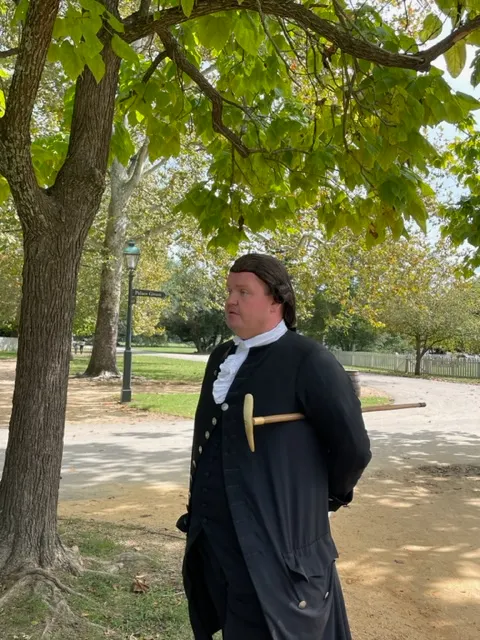
Robert Weathers portraying George Wythe.
Dr. William Small
Dr. Small taught Jefferson: he was Head of the School of Philosophy at the College of William and Mary, the 2nd oldest college in the United States.
Importantly, Dr. Small recognized the value in recommending Jefferson to Mr. Wythe. The four years Jefferson spent with Wythe, who in turn introduced him to Lt. Governor Fauquier, exposed him to the law as well as to thoughts and ideas that are recognizable in his future political opinions and endeavors.
Side story about Dr. Small: on one visit to the CW. Our master tailor in the shop dedicated to preserving the trade told me a story about Dr. Small. It was actually in reference to what was worn by students at the College of William and Mary.
There was a letter found, written by Dr. Small to a student, telling him what to bring with him to wear. Not related to philosophy but a peek into daily life in the 18th century as well as the climate in the Tidewater region so worth throwing it into this post!
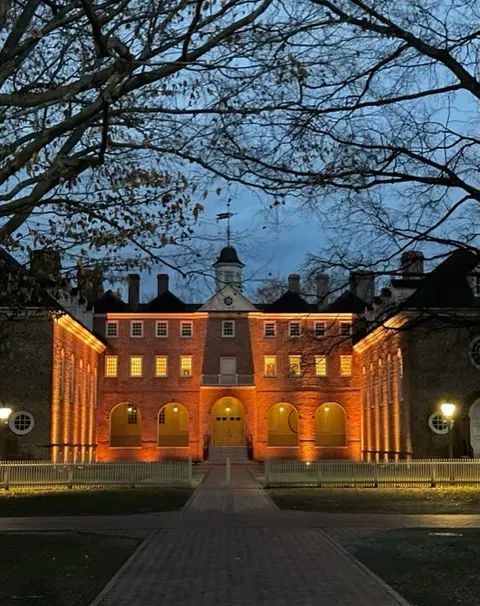
The Wren building, an original, at the College of William and Mary.
Lt. Governor Francis Fauquier
Before the infamous Lord Dunmore came into power as the Royal Governor of Virginia, there were other Royal Governors and Lt. Governors. Not all of them agitated Virginians by raiding the powder magazine and offending them with statements about why they didn't want to come to Virginia. But Dunmore is a man for another post and you can read what I've written here.
Francis Fauquier was one of those men.
Fauquier was in charge and living at what we call the "Governor's Palace" while Jefferson was a student at William and Mary and during his time with Mr. Wythe.
In fact, they all would often meet at the Palace in a sort of "society" similar to those back in England. Jefferson references these dinners the "parties quarrae."
They would have discussions, dine together, and it's quite possible a young Jefferson even pulled out his violin to play for and with the group. Mr. Smith cites a quote that Fauquier told him he should practice more.
RELATED: My post about music found in Jefferson's archives.
According to the extensive research I'm privy to in listening to and speaking with actor/historian Kurt Smith, Fauquier left Jefferson a silver ring upon his death; a clear sign of the significance of their connection. This memento mori carried an inscription Mr. Smith interprets as the friendship they had in life will continue after death.
Fauquier intended to leave even more to the medical future of our United States of America (though the Revolution hadn't defined us as such yet!). What was it? According to Robert Weathers, who portrays Mr. Wythe and also has studied the people of Colonial Virginia extensively, his body.
When he died, he offered his body to be studied (an autopsy!) by physicks because his illness was so awful and he wanted them to be able to treat anyone else suffering it or other illnesses. But no one dared take him up on it. He was buried in tact, no autopsy.
RELATED: Read more on Fauquier here.
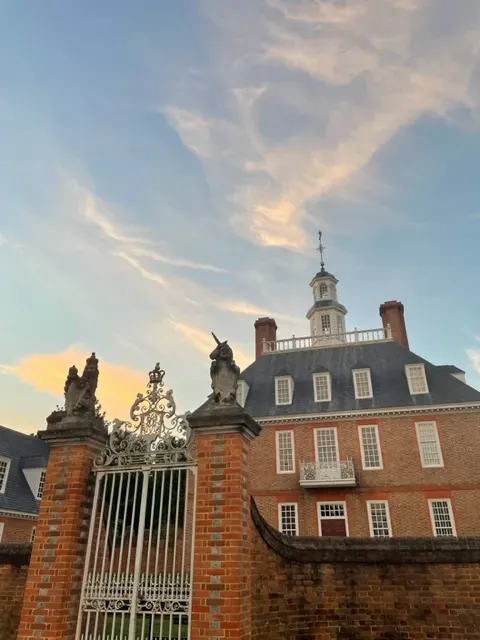
The Governor's Palace in Colonial Williamsburg, reconstructed.
Why these men were important to American Independence.
The answer is simple in my mind: they each had profound impacts on Thomas Jefferson, and he had profound impacts on American Independence.
From the words of Locke, who the Jefferson Triumvirate all studied well, about all men being born free and equal in nature shaping Jefferson's first draft of our Declaration of Independence, to the love for music that drew him and Martha together in love, these men meant something to our history.
No man (or woman) is an island. None of us are born adults and ready to do the "thing" we may be known for and other things we may not be remembered as doing.
Like all humans, Jefferson was complex (maybe more than most of us in fact). And to me it's fascinating to know how a 17 year-old Jefferson, future writer of the Declaration of Independence, Governor of Virginia, statesman and President, got started on adult life, right here in Williamsburg.
And just writing this post gives me ideas for questions I'll be asking as I wander CW and continue learning about Jefferson, like I did yesterday. It's clear I was on point in the impact these three men had on Jefferson the student, leader, and simply: the human.
Recommended Jefferson reads:
- Thomas Jefferson's Garden Book. Click here.
- Thomas Jefferson: The Art of Power. On my personal list based on a recommendation. Click here. (and if you get to it before me, tell me your thoughts!)
Closing words from history.
To end this post, closing words from a letter written by Jefferson to Dr. Small in 1775. The letter begins about wine and turns into his thoughts some recent political events surrounding the Revolution. I love how it shows the the regard Jefferson had for Dr. Small.
(To read the post in full and in context, click here.)
From Thomas Jefferson to William Small, 7 May 1775
To William Small
Virginia May 7. 1775.
Dear Sir
I had the pleasure by a gentleman who saw you at Birmingham to hear of your welfare....
But I am getting into politics tho’ I sat down only to ask your acceptance of the wine, and express my constant wishes for your happiness. This however seems secured by your philosophy and peaceful vocation. I shall still hope that amidst public dissension private friendship may be preserved inviolate, and among the warmest you can ever possess is that of Your obliged humble servt.,
Th. Jefferson
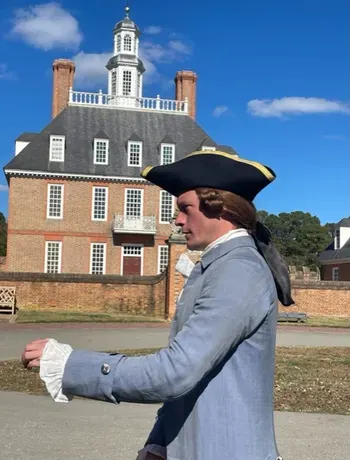
Kurt Smith portraying Thomas Jefferson.
If you enjoy the blog and want to support both my ability to continue it and my habit for caffeine, click below to buy me a coffee using my online tip jar!
There is a huge practical disclaimer to the content on this blog, which is my way of sharing my excitement and basically journaling online.
1) I am not a historian nor an expert. I will let you know I’m relaying the information as I understand and interpret it. The employees of Colonial Williamsburg base their presentations, work, and responses on historical documents and mainly primary sources.
2) I will update for accuracy as history is constant learning. If you have a question about accuracy, please ask me! I will get the answer from the best source I can find.
3) Photo credit to me, Daphne Reznik, for all photos in this post, unless otherwise credited! All photos are personal photos taken in public access locations or with specific permission.
